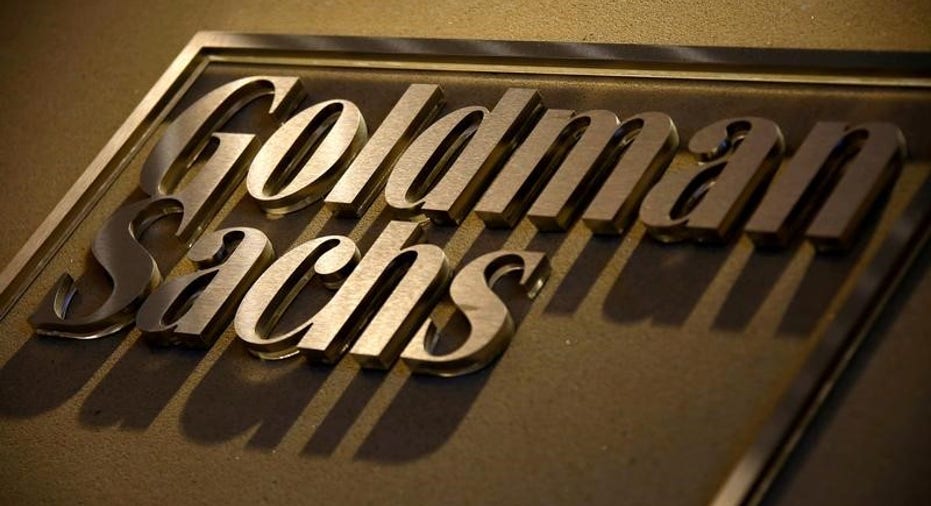Goldman Sachs Shares Socked After Trading Hit by Global Political Uncertainty

Shares of Goldman Sachs (NYSE:GS) saw their biggest drop since last June – accounting for more than half of the Dow Jones Industrial Average’s sharp 150+ point decline on Tuesday – after reporting a rare miss on first-quarter profit after trading revenue fell short compared to its rivals.
The New-York based investment bank said it booked profits per share of $5.15, higher than the $2.68 it earned during the same period of 2015, but below Wall Street’s expectation for $5.31 a share. Revenue, meanwhile, came in at $8.02 billion, 27% above the year ago period, but also missing the Street’s target of $8.44 billion.
JPMorgan’s (NYSE:JPM) head of European equity research banks team, Kian Abouhossein, was “disappointed” with Goldman’s quarterly results, especially when compared against its investment-banking peers.
Weighing on the bank’s results was a 2.4% decline in trading revenue to $3.36 billion during the quarter as revenue from trading for clients in bonds, currencies and commodities – a closely watched metric due to its importance to Goldman’s core trading business – rose just 1% from the 2016 period. Revenue from equities trading was down 6% from the year prior, which can be attributed to the decline in overall market volatility after the November elections.
At JPMorgan Chase, revenue for institutional client services jumped 14% as fixed income revenue rose 17% during the first quarter. Citigroup (NYSE:C) saw an 18% rise as fixed income revenues rose 19% for the quarter, while Bank of America (NYSE:BAC), which also reported results on Monday, booked a 23% gain in sales and trading revenue alongside a 29% jump in fixed income. Morgan Stanley is scheduled to report earnings on Wednesday before the opening bell.
“Part of the problem Goldman has is we’re in a low volatility environment and they had difficulty navigating that,” said JJ Kinahan, chief market strategist at TD Ameritrade. “Low volatility in dollar-euro pair and crude oil – because of their oversize interest in the business compared to their peers, struggling there hurt them more than others.”
Goldman’s Chief Financial Officer Martin Chavez, on the company’s earnings call with analysts, said the market was thrown into a period of “recalibration” in the first three months of the year as investors reassessed U.S. economic strength and growth potential as they await upcoming European elections. For Goldman, that meant underperformance during the quarter was driven primarily by a two-year low both in volatility for the dollar-euro and crude oil trades.
Executives said while they “didn’t navigate the market well” during the period, “no quarter defines the franchise.”
To that end, while Kinahan said the trading revenue miss was a big surprise, he sees it as a “one quarter slip up,” and expectations for more volatility as President Donald Trump and his administration navigate the challenges of public policy realities alongside upcoming UK and French elections, will likely help boost what was a weak area in the first part of the year.
“The bar is low as to where volatility was but we have seen a pick up. We saw gold have a five-month high this week with oil back above $50. So, things over the last few weeks would lead you to believe these are good things for their trading revenues and fixed income has had a lot of movement, too,” he said.
By the close of trade, the stock clawed back some of its losses after trading down as much as 5.5%. Shares ended down 4.7% at $215.59 each.
Investment banking revenues, generated by aiding in mergers and acquisitions and capital raising efforts, jumped 16% during the quarter, while total underwriting revenues paced up 37% with equities leading the way with a 70% surge from a year ago.
Executives on the earnings call said the M&A pipeline is “good” and they remain “cautiously optimistic” about the outlook amid attractive financing levels, CEO confidence, and a supportive equity market backdrop.



















